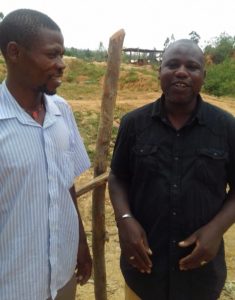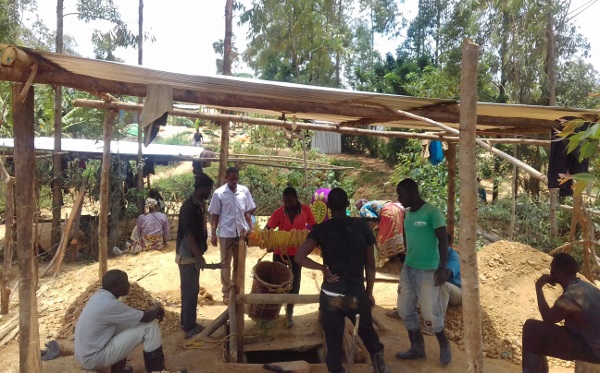Just after a short noon break, grinders roar into life again. They crush rocks and earth into dust and young men and women watch in anxious anticipation. “This takes about 45 minutes,” says Mr Mathew Kidula together with his Chairman, Justus Khakabo, both of Mwangaza Miners Community Based Organisation.
It’s the gold rush here at Rosterman, as residents who speak with heavy Luhya accent sift through dust and mud to pick out specs of gold in Ikolomani near Kakamega town. According to the two, a bucket of dust can yield 5 grammes of gold, with each gramme sold at Ksh3,400 to brokers on site. That keeps people working harder, day and night, to get more gold.
See Also >> With only Sh1,200 you can invest in gold at NSE
A British mining company, Acacia Mining, late February announced the discovery of an estimated 1.31 million ounces of gold resources at Lirhanda, Kakamega County, equivalent to Ksh165 billion at current market prices. This has heightened the local ‘miners’ efforts to get as much gold before Acacia moves in with big machines.
The informal gold mining has been practiced for years in Ikolomani, sometimes leading to deaths when the mines curve in as they occasionally do. But that has not deterred others in a county rated among the poor in the country. Folklore has it that the areas name Ikolomani was coined from a corruption of the world ‘Goldmine’ by the native Luhya speakers.

Mwangaza Miners has 85 members who work in shifts. Mr Kidula says resigned from an automobile company in Mombasa, a year ago, to try his hands at ‘mining’ gold from deep holes in Rosterman, which promises more cash. He doesn’t regret leaving Mitsubishi because, he observes, the send-off package enabled him start the gold mining business here. In a good week, the group makes about Ksh300,000 which is shared among members.
In the Rosterman pits, patience is a virtue, as the work can be so strenuous. Sometimes they can ‘crush and crush’ but find very little for the day. The loss, he points out, is usually very extreme. “We can make between Ksh3,000 and Ksh4500 on a bad day,” he says. A number of youths are abandoning the popular boda boda business to take to mining after it was announced there are huge deposits in the region.
For Sheila Ingata, who draws water from the nearby stream for the miners, time is money. As she scuttles to join her 16 colleagues who work as though they are remote-controlled, Sheila reveals she earns Ksh480 for ferrying water that is used to clean out dust from the earth dug out.
The owner of the land on which this seemingly bottomless pit is sunk is paid Ksh300 every day, notwithstanding the fact that a section of it is already leased at Ksh10, 000 per month.
Mr Kidula and Mr Khakabo have sunk two holes, about 45 metres deep on less than one eighth of an acre of land which belongs to Mr Peru Muchika. The mines have created a thriving economy in the area with some residents earning rent from the miners while others sell food.
[crp]

